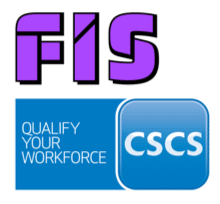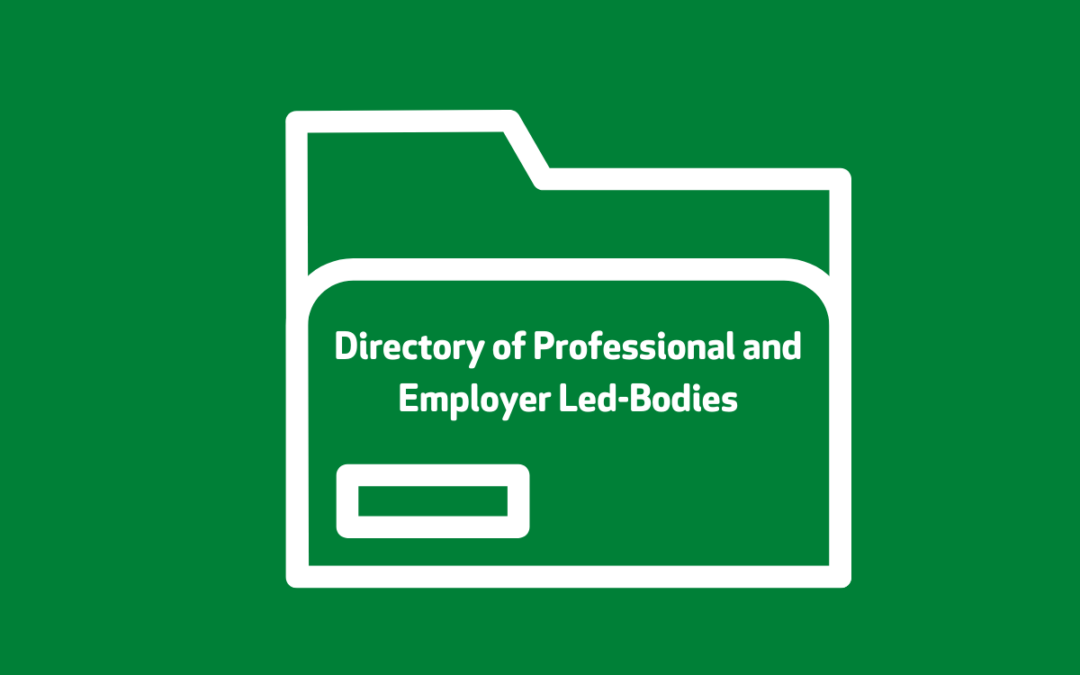
by Clair Mooney | Jul 14, 2022 | CSCS, Skills
CSCS is aware of concerns raised by many within the construction industry regarding the decision to withdraw cards issued under Industry Accreditation (IA). They have published an article setting out some of the common areas of concern and information on how they can be resolved: Construction Skills Certification Scheme | Official CSCS Website – Industry Accreditation: Common queries answered
Here are some extracts that should be useful to FIS members:
What is Industry Accreditation?
Industry Accreditation (IA) was a mechanism by which workers could obtain CSCS cards on the strength of an employers’ recommendation rather than the achievement of a recognised qualification. CSCS stopped issuing new cards under IA back in 2010, but if you previously held a card under IA the scheme rules allowed you to continue to renew.
Why is Industry Accreditation being withdrawn?
CSCS, together with their 37 partner card schemes, are bound by the Construction Leadership Council’s (CLC) requirement that all construction industry card schemes must operate with nationally recognised qualifications in place for all occupations. This requirement is particularly important when addressing the IA issue. To satisfy the Construction Leadership Council’s requirements CSCS announced plans to withdraw cards issued under IA, which include:
- IA cards issued from 1 Jan 2020 will expire on 31 Dec 2024 and will not be renewed
- CSCS will cease renewing IA cards from 30 June 2024.
What options are there to move off Industry Accreditation?
- Vocational qualifications already achieved: cardholders who have achieved the qualifications for their occupation can renew their card for the full five-year term as normal.
- Academically Qualified person card: This card is available to people who have completed certain construction related degrees, HNDs, HNCs, CIOB Certificates and NEBOSH diplomas. Further details can be viewed here.
- Professionally Qualified person: This card is available to competence assessed members of CSCS approved Professional Bodies of which CIOB is one. Further details can be viewed here.
- Not everyone needs a card: There will be IA card holders who no longer require their CSCS cards. For example, you may have moved into a management role, become a director, or rarely visit site. In these scenarios, you do not require a CSCS card.
Those unable to fit into these four scenarios will be required to register for the appropriate qualification for their occupation before their cards expire in 2024.
If you or your workforce need a qualification to show proof of competence contact FIS, we have negotiated offers and discounts in training and qualifications specifically for members. Call 0121 707 0077 or email info@thefis.org or take a look at the FIS website: Member Benefits Training and Qualifications

by Clair Mooney | Jul 13, 2022 | CSCS, Skills
Employers and the wider industry are being reminded of the importance of ensuring those on, or about to enter, apprenticeships are using the appropriate Construction Skills Certification Scheme (CSCS) card – specifically the Apprentice card.
Feedback from the industry confirms many employers are either not aware of the Apprentice card or are put off applying for it by lengthy apprenticeship registration processes. This leads to many opting for the Labourer card instead.
In recognition of this issue, in advance of the new academic year, CSCS is simplifying the application process and removing the cost of Apprentice cards. From today, all Apprentice cards will be issued free of charge.
At the same time CSCS will be introducing a new process for anyone experiencing difficulties with their apprenticeship registration. In this scenario, the new entrant can apply for the Provisional Card (at £36), before moving onto the Apprentice card, free of charge.
This means employers and apprentices will apply for a Provisional card prior to completing the apprenticeship enrolment process.
George Swann Skills and Training Lead says
This is great news. Our own FIS BuildBack programme provides individuals who successfully complete the assessment day and two week introductory training with a CSCS provisional card free of charge to the supporting employer. This allows the employer six months to decide if the individual is capable of completing an apprenticeship. For details of the apprenticeships available to the sector please see:
If you would like to find out more please contact FIS on 0121 707 0077 or email info@thefis.org.

by Clair Mooney | Jul 9, 2022 | Main News Feed, Skills, Transformation
Public consultation launched by the Institute for Apprenticeships and Technical Education (IfATE) on planned new employer-focused approvals system for level 3 technical qualifications.
IfATE want to hear from employers on their proposals to approve the next generation of technical qualifications. The consultation runs from 30 June until midnight on 10 August.
Why employer views matter
A truly integrated skills system brings employers (or their representatives) into the heart of product design, ensuring that employers’ skill needs, across occupations, can be fully understood and met. IfATE share the Department for Education’s (DfE’s) ambition that, in future, the qualifications landscape should be streamlined, offering clear career progression opportunities and giving confidence that qualifications are high quality.
A fundamental part of this will be IfATE’s employer-led occupational standards, alignment to which ensures that students are gaining the knowledge, skills and behaviours employers tell us are needed to be competent in an occupation. The occupational standards are presented in the IfATE occupational maps; these underpin their work, setting out the occupations that can be accessed through technical education. This is an opportunity to share your views and support IfATE to achieve their ambitious plans by helping them shape the approvals process for qualifications submitted as part of the revitalised technical education landscape.
You can access the consultation via this link: https://www.instituteforapprenticeships.org/reviews-and-consultations/consultations/post-16-consultation/. For any questions in relation to this consultation, please contact Ifate.POST16@education.gov.uk

by Iain McIlwee | Jul 7, 2022 | Building Safety Act, Main News Feed, Skills
Following the Grenfell Tower fire, FIS has been working at the heart of Working Group Two (WG2), established as one of the Competence Steering Group (CSG) working groups to look at the competence of those installing fire safety systems. This remit subsequently expanded to cover all installers working in construction and the built environment.
WG2 has recommended that the industry should adopt a framework for all the installer sectors working on in-scope buildings that can be applied to other project types. The framework will consist of:
1. Accredited third party certification of companies
2. Level 2 or 3 qualifications for individuals
3. A card scheme such as, but not limited to, the CSCS
4. CPD refresher training and the maintenance of individual skills
5. All installers have a core knowledge of fire safety in buildings – training to be standardised and made mandatory
In line with these recommendations, WG2 has completed the first phase of its work benchmarking the existing competence arrangements of six pilot installer sectors which have the potential to significantly impact on life safety. The six pilot sectors are:
1. Domestic Plumbing and Heating
2. Dry Lining
3. Fire Detection and Alarms
4. Fire Stopping Specialist
5. Rainscreen Cladding
6. Roofing
The objective of ‘Pilots – phase one,’ was to establish the current competence arrangements, compare them to the WG2’s
recommendations and BSI Flex 8670: Core criteria for building safety in competence frameworks – Code of practice and identify
any gaps.
These Pilots have been completed and WG2 will now move to phase two and the six pilot installer sectors will reconvene with their own Chairs and Terms of Reference, to develop their sector-specific competence frameworks to meet the recommendations set out in Setting the Bar. This work is expected to last between six to nine months with each sector developing a timeline and implementation plan for addressing the shortcomings.
FIS has helped to assemble a working group to focus on Dry Lining, with the initial meeting of the Working Group Chairs scheduled for September. The organisation is providing support to this group to link to the work around firewalls identification and labelling and ensure that competency frameworks developed and the processes, support required to deliver the required level of competence are practical and to identify any obstacles to systemic success.
FIS CEO Iain McIlwee commented: “The Building Safety Act is here and we need to ensure that we have robust processes to meet the exacting requirements. Competence is at the heart of it and we looking forward to using this pilot to pull together a lot of hard work that has been put in by members and particularly our Skills Board to ensure that we don’t just know what good looks like, but we know how to get there. This is a great opportunity to show that the sector is stepping up.”
The latest report Working Group 2 report which provides more context is available here – if you are interested in finding out more about this work and getting involved in the pilot group email iainmcilwee@thefis.org
Find out more about the FIS Competency Passport system here
Find out more about the Building Safety Act here

by Clair Mooney | Jul 7, 2022 | Skills
FIS has been successful in its application to work with the Institute for Apprenticeships and Technical Education (the Institute), The Office of Qualifications and Examinations Regulation (Ofqual) and The Office for Students (OfS) in the quality assurance of the apprentice End-point Assessments. As an Employer Directory Organisation FIS represent the employer’s voice working primarily with the Institute.
The commitment for FIS is to support a network of subject matter experts known as Employer Directory Experts who will work with Ofqual and/or OfS on assuring end-point assessment in order to provide insight, intelligence and expert resource. Each individual will be approved for this work by FIS. The work will be commissioned by Ofqual and/or OfS and individuals will be paid for the service they provide.
This system is about improving the End-point Assessment for the Interior Systems Installer, Dryliner and Ceiling and Partitions Installer and Plasterer, Solid and Fibrous so that it remains relevant and accurately assesses an apprentice’s competence.
Commenting on the appointment FIS CEO Iain McIlwee commented “It is vital that we get the qualifications to work for us as a sector and this is only possible if we roll up our sleeves and get stuck in to the reform process. We are crying out for people, we have ever more onerous qualification requirements and fundamentally we want to elevate the perception of the whole sector, so people see what we see – a professional, skilled sector that attracts people and that people are proud to be part of. To do this we need of practitioners, employers who know what they need from new entrants, to sit on the various working groups to ensure that the qualifications are relevant and have pathways that are deliverable for businesses in the finishes and interiors sector. It is great to be, through this appointment, part of the process, but this is only the start – the work starts now and we need the industry to get behind us.”
FIS is also working on apprenticeship reform in Scotland, where the Carpentry and Joinery and Dryliner Apprenticeships are currently starting a review process. If you are interested in supporting qualification reform in England or Scotland please contact George Swann 07553 874838 or email georgeswann@thefis.org.
Find out more about qualifications in the finishes and interiors sector here.

by Clair Mooney | Jul 6, 2022 | Skills
As a result of the FIS Regional Events FIS has made an effort to address some of the key points raised by audiences. This is detailed in our report which is available to download here.
With labour shortages and recruitment, a key challenge within the sector, presentations and discussions focused on the scale of the problem, local opportunities and provided ideas to support recruitment, retention, social responsibility, competence and funding. A summary of the key point and potential actions taken from these events has been linked to the FIS Skill and Competency Strategy for 2022 to show what is being done to support the sector. Thanks go to all who attended, with particular thanks to CITB who sponsored the events and all of the guest speakers. We know from the feedback received many took away useful information and we look forward to seeing you at the next round of FIS regional events later this year.
Page 16 of 43« First«...10...1415161718...3040...>Last






